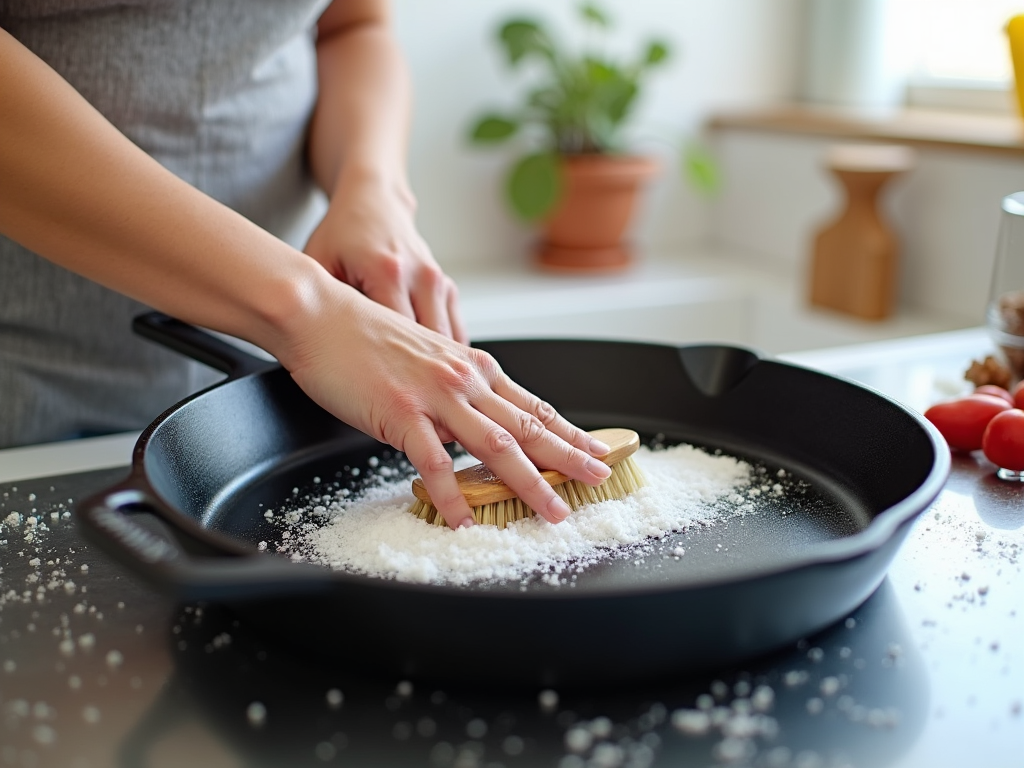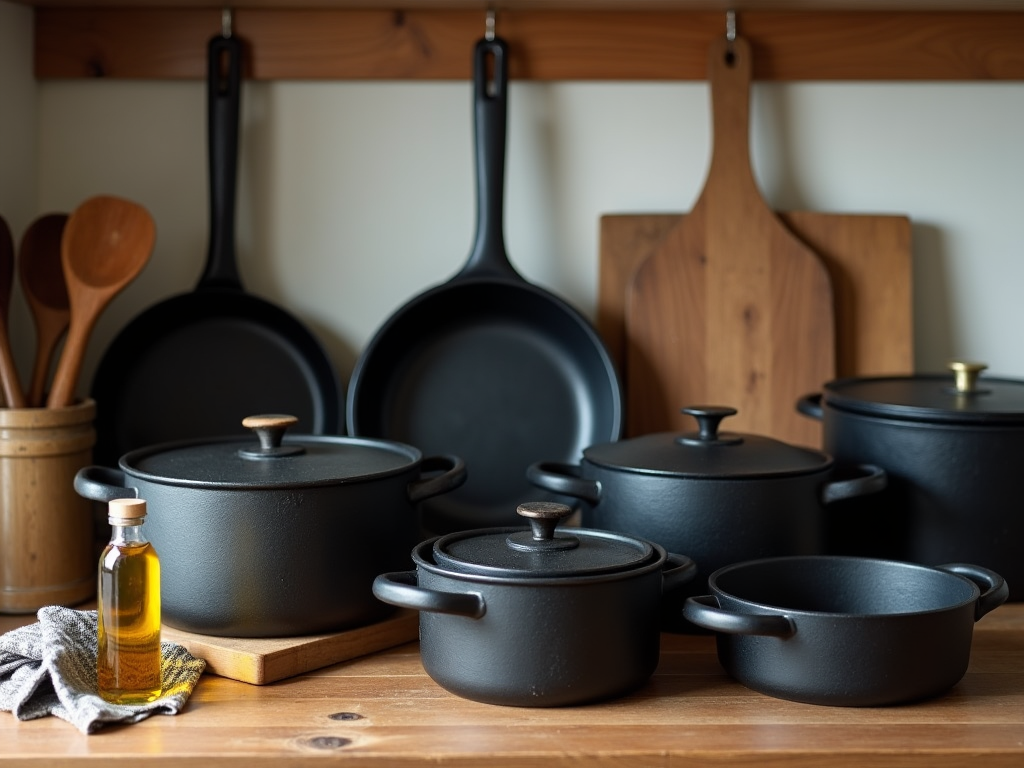There’s something undeniably nostalgic and comforting about cooking with cast iron cookware. Perhaps it’s the way the heavy skillet retains heat, creating perfectly seared meat or golden hushpuppies. For many home chefs and cooking enthusiasts, cast iron is more than just a cooking vessel; it’s an heirloom that, when cared for properly, can last several generations. However, its maintenance requires specific techniques, especially when it comes to cleaning. Unraveling the mystery behind the care of cast iron will not only improve your cooking experience but will also make its preservation an engaging endeavor.
Cleaning cast iron correctly is pivotal to avoid damaging this culinary treasure. Many fall into the trap of believing that soap is essential for cleaning. In reality, the use of soap can strip away the seasoning that you’ve developed, leaving your cast iron vulnerable to rust and food sticking during cooking. Keeping your cookware’s seasoning intact allows you to enjoy the benefits of non-stick cooking and prevents the iron from reacting with acidic foods. Understanding this essential care guide is crucial for keeping your cast iron cookware in prime condition for years to come.
Why Avoid Soap and Water

One of the most common misconceptions about cleaning cast iron is that it’s best to scrub it with soap and water. Although these methods work well for other materials, cast iron is different. Seasoning, which forms a natural non-stick surface, is created through a process of polymerizing fat at high temperatures. When soap is used, it can damage this essential layer, leading to food sticking and a potential increase in rusting. Moreover, using harsh chemicals can create an unwanted flavor profile in your dishes. The fewer chemicals you use, the better your cast iron will age and improve with time.
Seasoning is essentially a protective barrier formed by layers of oil that have been heated until they bond to the iron surface. This well-seasoned cooking surface not only provides great cooking results but also prevents moisture from making contact with the metal. Each time you cook with oil, you’re adding more to this layer, enhancing its effectiveness. However, it is crucial to understand that using soap routinely can compromise this delicate balance. This is where many make mistakes, believing they are protecting their cookware while inadvertently harming it.
Essential Cleaning Supplies

Before you embark on the cleaning journey, gather the necessary supplies. Here’s a concise list of the basics you’ll need:
- Hot water: Helps to loosen any stuck-on food.
- A stiff brush or sponge: Designed for scrubbing without damaging the surface.
- Coarse salt: Serves as an abrasive for tougher food residues.
- Vegetable oil or melted shortening: Essential for re-seasoning after cleaning.
| Cleaning Method | Description | Frequency |
|---|---|---|
| Daily Use | Scrape and rinse with hot water, dry thoroughly. | After each use |
| Deep Cleaning | Use salt and a stiff brush for tougher residues. | As needed |
| Reseasoning | Apply oil and heat to restore the seasoning. | When needed |
Step-by-Step Guide to Cleaning Cast Iron Cookware
Cleaning cast iron is an art form that, when done by the book, can lead to your cookware’s optimal performance. Here’s a streamlined method to ensure you keep your cast iron in top condition:
- Let it cool: Always allow the skillet to cool slightly before cleaning, as sudden temperature changes can warp and crack the cookware.
- Scrape off food residue: Use a spatula or brush to remove any stuck-on bits. For stubborn pieces, a dab of hot water will help.
- Rinse with hot water: Under hot water, rinse your cookware. If you encounter any remaining food particles, a stiff cleaning brush can work wonders.
- Add coarse salt for tough stains: For any persistent residue, sprinkle coarse salt on the surface. The salt acts as an abrasive that safely removes stubborn bits.
- Dry thoroughly: It’s critical to dry your cookware completely. Any moisture left on can cause rusting.
- Re-season your cookware: Finally, apply a light coat of vegetable oil or softened shortening and heat to keep the non-stick layer robust.
Common Mistakes to Avoid
While cleaning your cast iron, be aware of these frequent pitfalls that could damage your beloved cookware. Each of these mistakes takes a toll on the longevity and functionality of the pan:
- Using soap: Unless it’s a dire situation that requires it, steer clear of soap to avoid stripping the seasoning.
- Soaking in water: Don’t let your cast iron dwell in water; this leads to rust.
- Skipping reseasoning: If you fail to re-season after cleaning, food is likely to stick and flavor transfer can occur.
Conclusion
Taking care of your cast iron cookware doesn’t have to be complicated. However, it does require a unique approach that emphasizes the right cleaning techniques. By implementing these cleaning steps and avoiding common pitfalls, you’ll preserve the seasoning, ensuring your cast iron remains a reliable kitchen companion for years to come. In the end, the effort you invest in cleaning directly impacts the flavors you create and the stories you will share around the dinner table.
Frequently Asked Questions
- Can I soak my cast iron cookware in water? No, soaking can lead to rust. It’s best to clean quickly and thoroughly.
- What should I do if my cast iron gets rusty? You can scrub the rust away with fine steel wool, wash it, dry thoroughly, and then reseason.
- Is it safe to use soap on cast iron? It is generally advised against using soap, as it can strip the seasoning. If soap is necessary, use it sparingly.
- How often should I re-season my cast iron? Re-seasoning can depend on usage. If the surface appears dull or food starts to stick, it’s a good time to re-season.
- Can I use my cast iron cookware on an induction cooktop? Yes, as long as your cast iron cookware is flat and magnetic, it will work on an induction cooktop.